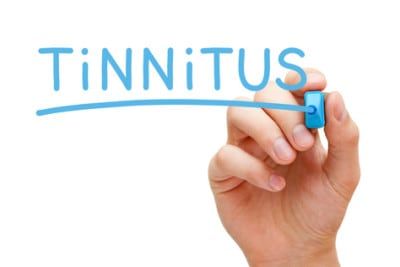
Tinnitus aurium – causes and treatment options
Tinnitus aurium – also popularly known as ringing in the ears – refers to a sound in the ears that is perceived exclusively by the affected person and to which no external sound sources can be attributed.
The medical term “Tinnitus aurium” can be translated from Latin as “ringing in the ears” (tinnīre=ringing, auris=ear) translate, but also a beeping, whistling or hissing is possible.
Causes of tinnitus aurium
Over three million people in Germany suffer from tinnitus. Besides the disease of the ear respectively the auditory pathway as the central nervous part of the auditory system, many other things can induce tinnitus:
- acoustic trauma (noise trauma, bang trauma, explosion trauma),
- Foreign body in the ear canal,
- Excessive music listening through headphones,
- hearing loss, sudden deafness and hearing loss,
- Age-related hearing loss,
- inflammatory diseases of the middle or inner ear,
- viral and bacterial infections,
- functional malposition of the temporomandibular joint or the cervical spine, and teeth clenching,
- Diseases of the central nervous system,
- psychological stress,
- Hypertension,
- side effect of medication
- smoking and excessive alcohol consumption,
- accidents (especially diving accidents)
diagnosis of tinnitus aurium
In the diagnosis of tinnitus, a distinction is made between subjective and objective tinnitus. A subjective tinnitus is induced by the already mentioned causes. Consequently, no source of sound can be identified within the body, but in the case of objective tinnitus it can be.
sound sources can be, for example, flow noise in blood vessels caused by tumors in the middle ear, hemangiomas or tubal dysfunction. However, this occurs very rarely (in less than one percent of cases), mostly a subjective tinnitus is diagnosed.
According to the latest neurological findings, the perception of subjective tinnitus does not originate in the ear itself, but from overexcited neurons in the brain.
Forms of tinnitus – acute and chronic
Furthermore, a distinction is made between acute and chronic tinnitus, whereby the duration of the ringing in the ears is decisive for the designation.
It is considered acute if it does not exceed a period of three months. If it persists for longer than three months, it is called chronic tinnitus.
Treatment options for tinnitus aurium
Basically, as with any other disease, the sooner treatment is started, the more likely it is that the tinnitus will be cured or at least that it will not worsen.
As a rule, the three therapy components medication, relaxation exercises and tinnitus counselling (advice and information), including coping strategies, are combined with each other.
Drug therapy
Especially in case of an acute tinnitus aurium, medication is prescribed by the ENT doctor. High-dose cortisone in the form of an infusion or tablets, antibiotics for inflammatory diseases of the ear and blood circulation-enhancing drugs for a hearing loss are used.
Supportive medicines based on Ginkgo Biloba extract are recommended, which are available over the counter in pharmacies.
These purely herbal preparations promote blood circulation in the inner ear without side effects and thus support regeneration in both acute and chronic tinnitus.
Relaxation techniques
Stress is one of the most common risk factors for the development of tinnitus. Stress also has a negative effect on already existing tinnitus.
Due to a lack of relaxation in stressful life situations, the perception of the ringing in the ears intensifies – it appears louder to us or changes its frequency.
Relaxation techniques play a role in both forms of tinnitus and in prevention, but are essential for chronic tinnitus. Because it is quite possible that it will last a lifetime.
However, by reducing stress, one can avoid the worsening of symptoms and noticeably reduce the burden of tinnitus.
The following relaxation techniques are recommended by doctors and experts:
- Progressive muscle relaxation according to Jacobson,
- Feldenkrais Method,
- Meditation,
- Autogenic training,
- Yoga, Tai-Chi and Qigong.
Tinnitus Counseling
Despite treatment measures such as drug therapy or relaxation methods, the ringing in the ears may not disappear. That is why it is important to consciously deal with your tinnitus and to consider it in the context of your own life situation.
On the basis of this, coping strategies are developed in tinnitus counseling that enable the person affected to deal with his or her tinnitus in a relaxed manner. The cognitive-behavioral tinnitus retraining therapy (short: TRT) is one of the most recommended therapies, which can be performed both as an outpatient and as an inpatient.
Within the framework of TRT, the patient is trained to pay as little attention to the tinnitus as possible over a period of 12 to 18 months by means of guided group discussions. Sometimes a noiser – a kind of mini hearing aid – is used to mask the tinnitus by means of acoustic stimulation.
Psychosomatic clinics also sometimes offer inpatient therapy specially tailored to tinnitus sufferers. In addition to counseling and the development of coping strategies, education is provided about tinnitus in general. Which challenges go along with it and by what it can be influenced, are for example topics in the area of education.
Asking the professionals at Audika for information and making an appointment for a personal consultation at your nearest Audika hearing center is always another sensible step in dealing with tinnitus.
Audika’s hearing aid acousticians offer not only counseling, but also further, goal-oriented support on the treatment path. Last but not least, special tinnitus consultation hours are offered in clinics and by many ENT physicians.
Other treatment options: Music therapy, magnetic field therapy and homeopathy
Music therapy has been shown in clinical studies to be a helpful treatment for both chronic and acute tinnitus.
The music is adjusted to the previously determined tinnitus frequency and thus masks the ear noise. As a result, the tinnitus is no longer or only barely perceived and the focus of perception shifts to the external sounds.
Magnetic field therapy, on the other hand, is said to have a circulation-promoting effect, which is why it is used primarily for tinnitus associated with functional misalignments of the cervical spine.
Treatment with homeopathic remedies should not be underestimated, although their effect is scientifically disputed. Tinnitus patients often report positively on the use of homeopathy, especially the globules Phosphorus and Petroleum Rectificatum are frequently mentioned.






